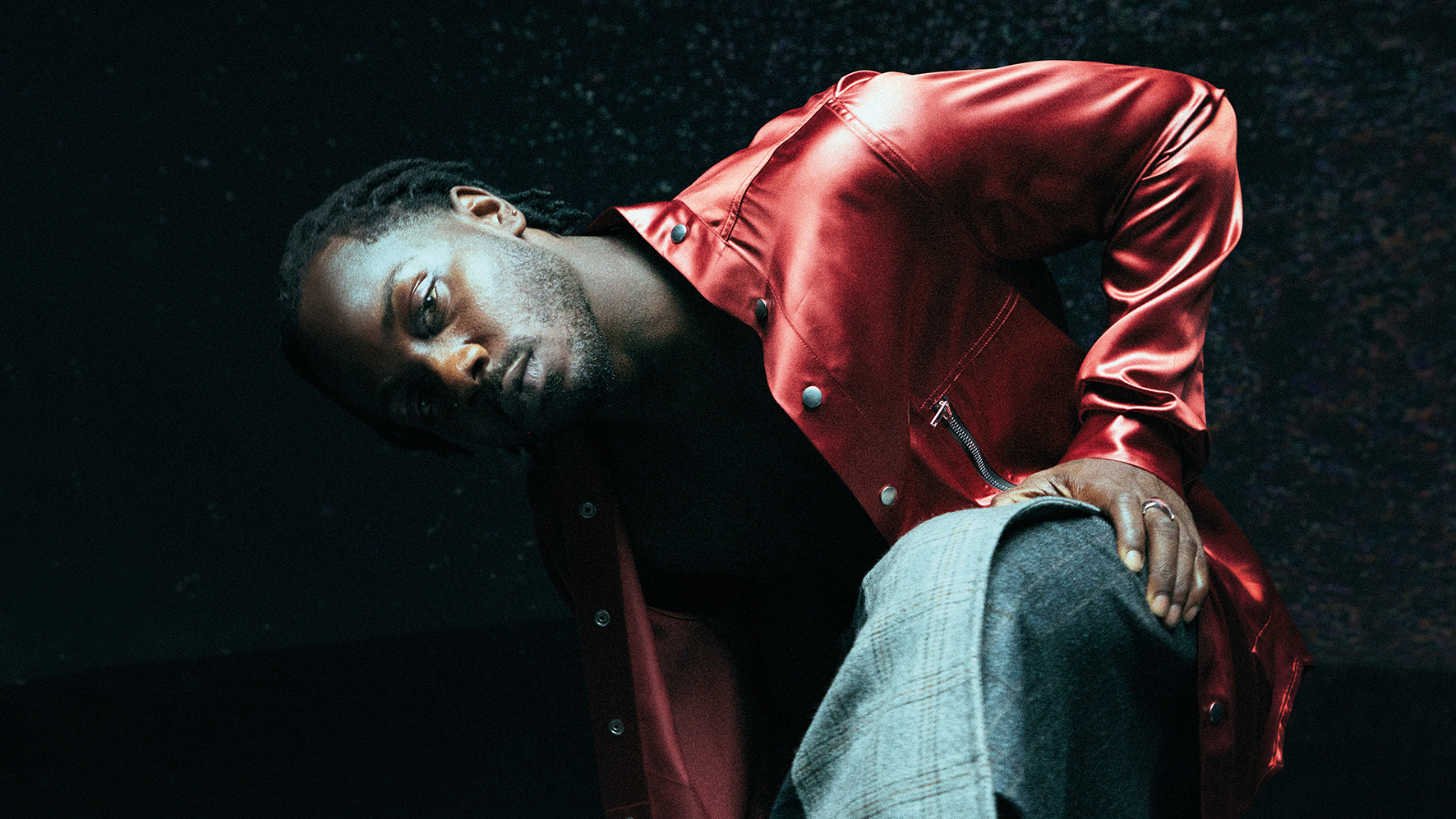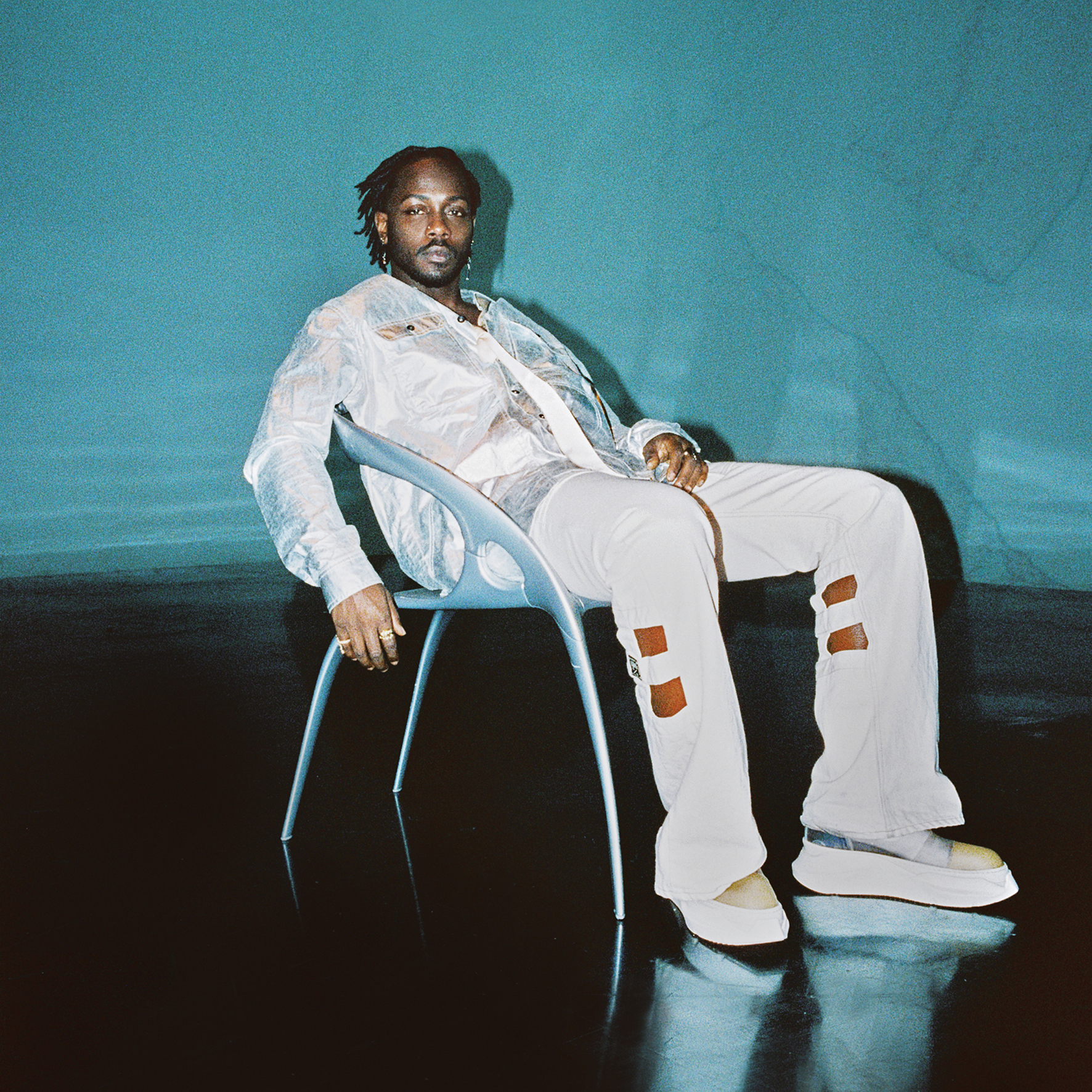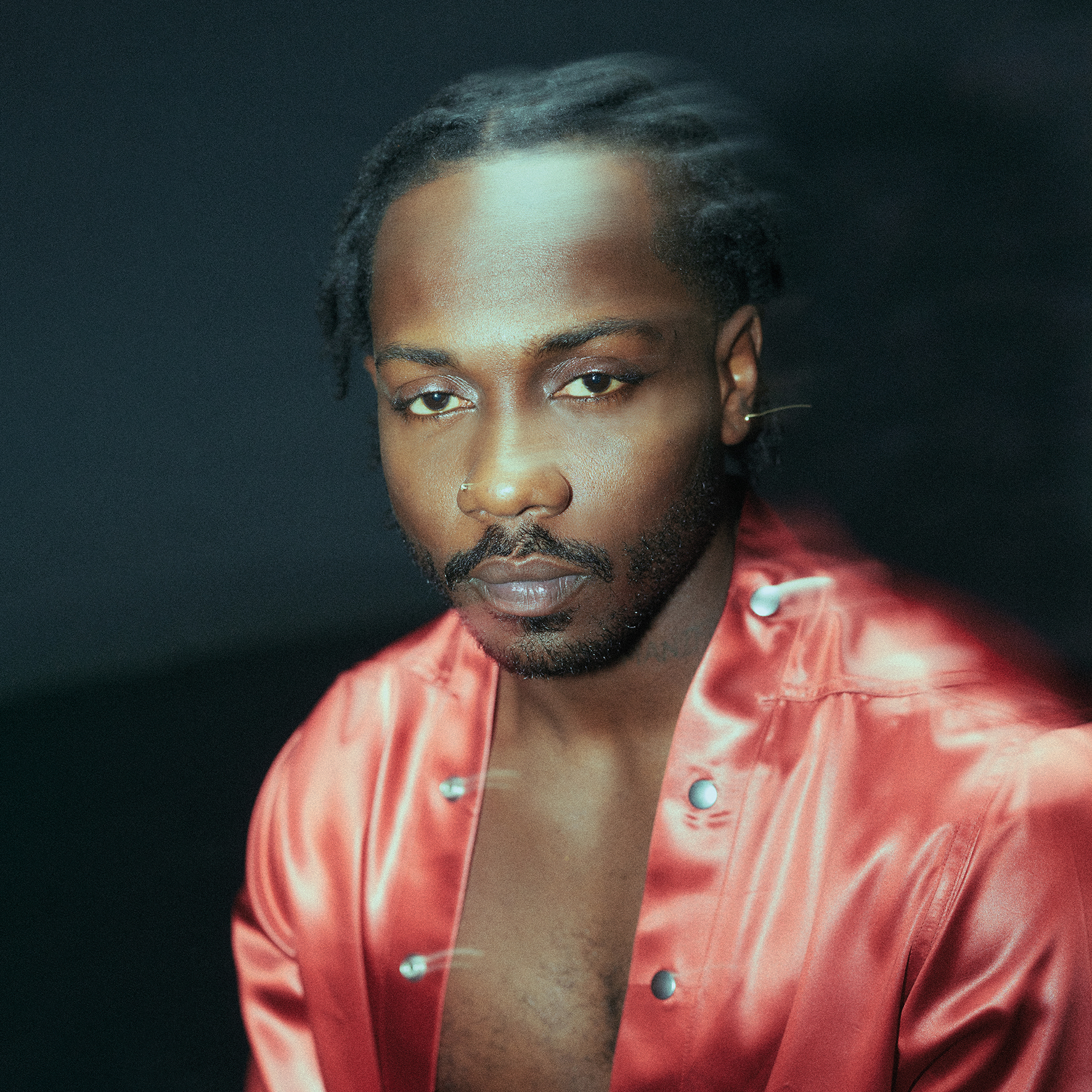Channel Tres: "Playing with hardware gives you the feeling back. When I’m up on my feet and physically turning analogue knobs, I’m more willing to do things that I wouldn’t normally do"
One of dance music’s most distinctive voices, Danny Turner chats to Channel Tres about the origins of his ‘Compton house’ sound

Initially a drummer, Sheldon Young studied music at university in Oklahoma before making beats under the mentorship of childhood friend and American rapper Ray Jacobs (aka August 08). Working on material under the alias Channel Tres, Young first arrived on the house scene in 2018 with his debut single Controller becoming a cult hit.
Further EPs showcased the producer’s forward-looking blend of Chicago house, Detroit techno and West Coast rap. Generically labelled ‘Compton house’, the 32-year-old’s hushed baritone – oft compared to soul supremo Barry White – reconnects to the classic house sound, while the latest Channel Tres EP, Real Cultural Shit, further underscores Young’s impressive ascent.
You studied music at university in Oklahoma. Was that with a view to having a career as a producer?
“That was back in 2011 when I was trying to get a job and figure something out – the goal was to be a producer and a session engineer. I learned about the technology behind music, music theory and how to collaborate and put projects together. When I started releasing tracks I got some real world experience but the university syllabus allowed me to learn different types of music technologies, which kind of works well for my brain.”
You played drums as a youngster at church. What led you towards becoming a beat maker rather than a traditional drummer?
“I wasn’t that good. The level of musicianship in Los Angeles was crazy back then and I got tired of competing with all the other drummers at my local church so I thought I’d just make beats. When I left college, my friend August 08 got a songwriting deal and when I moved back to LA I was able to go to sessions with him and understand how to produce records. He let me stay on his couch and dedicate myself to making music all day long, so I quit my teaching job and that’s how I got my foot in the door.”
Presumably you were already making your own tracks by that point?
Want all the hottest music and gear news, reviews, deals, features and more, direct to your inbox? Sign up here.
“I actually started making tracks when I was 12. I didn’t have the talent to mimic my influences so I was just making abstract, weird beats. Logic 9 was the first digital audio workstation I used, but the first beat I made was probably on an Akai MPC2000 or something similar that had a floppy disk and allowed me to burn stuff to CD. Making music came naturally to me and it started taking on this boom bap feel, mainly influenced by hip-hop artists like Dr. Dre, J Dilla and Blu & Exile.”
Was there an inflection point where you felt you could make it in this industry?
“That was probably around the time when I executively produced Duckwrth’s album I’m Uugly. He was trying to get some notoriety and I had that. Suddenly I thought to myself, ‘maybe I’m talented because I’m helping to further this person’s career’, and I started applying that energy to myself.”
Your sound has been labelled ‘Compton house’. Are you happy with that?
“I guess people like to put labels on things so they have something to reference them to, but I don’t really care – whatever gets the music out there. I’m from Compton, I make house music and this is my style over the type of beats I like to be on, but I’m a student of all music and once you take that approach you realise that everything is connected.
“Whether you’re making jazz, country or house, it’s just about detailing your experiences. I’m a Gemini, so I could have a phase of listening to ambient music, jazz or blue grass.”

Do you feel that house music is having a resurgence?
“Some big pop artists dove into the genre recently so people feel like there’s been this resurgence, but I discovered house music at college when I was 21 and it’s been there the whole time. These days everything’s so mixed up that I don’t have to rely on the radio to listen to things – I can just go online. I’m a big Prince fan; he put stuff together from all sorts of genres, so it doesn’t really matter.”
Kanye and Outkast were also influential to you. Was that because they explored topics that most people in rap and hip hop didn’t?
“They spoke about human shit – heartbreak and love. Being from Compton, I was sensitive to a lot of my fears, but being a more eccentric type of character, I didn’t really like to fight and didn’t like guns or people arguing. Most of the music around me was about that type of stuff – and I liked some of it, but I wanted to gravitate towards Kanye, Outkast and people like that.”
Are your lyrics observations on what you’ve experienced growing up in a particular environment?
“It depends on the type of music I’m writing and the mood that it’s made for. The fun part of music is that it’s like acting – you can pretend to be something you’re not. I have voices that I use and can play those characters out through singing, dancing and performing on the live stage. For the first couple of years at university I was a drama minor – I loved plays and contemporary dance.
“If you go watch my video for 6AM, you can see how I was trying to dive into the Rick James-type of personality and my first video for Controller was shot in a skate bar where I grew up. If you look into your own personal life you’ll realise you’ve played certain characters, and I liked going back to being those people to see who they were.”
If you’re only writing about past experience, does a time come when there’s nothing left to say?
“Life is so big. I watch TV and movies and there’s plenty of stuff to write about. Right now I’m like a kid in a candy store – there are instruments I haven’t played and sounds I haven’t discovered. The one thing that people often miss about music and creativity is collaboration. When you’re working with other people, it’s hard to run out of things to do.”
Do you find collaboration has stretched you as a producer/songwriter?
“I’d never been surfing, but I’ve got a friend who goes surfing who taught me how to, so now I’m surfing. That’s added something to my life and that’s how I see collaboration. You’re just looking for an exchange of energy and if we have camaraderie and our vibes match then we’re going to be great friends.
When I made 6AM, it felt like someone going to war and this was my artillery – a weapon I could pull out and know it’s going to make people dance
“That can come through management making a suggestion or other producers telling me that I should hang with certain people because we’d be a good match for each other. Obviously, you also meet people randomly, but if that experience doesn’t work for you then you’ve learned a lesson, too.”
What do the lyrics to one of your most popular recent tracks 6AM refer to?
“It’s just a song about having fun. We had the lockdown for a minute and coming out of that phase I felt like I needed to make a record that would make people want to party. I’m a DJ too, and find that people gravitate towards 6AM at festivals. When I made it, it felt like someone going to war and this was my artillery – a weapon I could pull out and know it’s going to make people dance.
“Before the pandemic, people were still discovering who I am, but now I get the feeling enough people are starting to figure me out and know the words to my songs. Everything’s growing and getting bigger.”

Your vocal style is quite intimate – almost like a conversation between you and the listener. Is that intentional?
“I think so. I have a deep voice and people call me a rapper, but I’m not really that. One thing that I love about my work is the use of space. With rap, sometimes people are just talking every syllable at you, but when you say lyrics and let them breathe rather than follow them with continuous words, people have time to stop and think about them – and maybe that’s why it feels more conversational.”
Does that require the music to be stripped down to help the vocal stand out?
“It depends on the type of track I’m making. Sometimes I don’t need to use many lyrics because the production is driving the song. That’s the thing about house music – a lot of times the bass and rhythm is driving it because you want people to dance for a while.
I have a deep voice and people call me a rapper, but I’m not really that
“You might put a couple of words in there to give it a feeling, but I try to make my vocal part of the instrumental rather than have it sit on top of the music. For me, 6AM is more of a traditional pop record. I’m diving into the Prince character and mixing it with the Barry White character I also have.”
Like the Compton House tag, is the Barry White association something that’s been foisted on you?
“I didn’t know my team would do that, but I love Barry White. Early on, when people don’t know who you are, it’s good that others can compare you to certain people, but I’m not Barry White or Prince, I’m just inspired to be the best Channel Tres that I can be. I’m a student of people like Prince, Pharrell Williams and André 3000, and want to pay homage to them. It’s not that I want to be them or have my music sound like them, but their fearlessness and the way they approach their art really inspires me.”
Would you still consider yourself a bedroom producer?
“I was sitting on the couch last night writing jingles and I often lie on my bed, slip into Ableton and start chopping samples. All of my DJ gear is in my living room, but I also love going into a really big, nice studio and working on records there, too – now that I have the pleasure!”
Did you create 6AM from the beat upwards?
“This one started with a story. One of the producers I used to work with brought me a sample that he thought I could use in the song. I gravitated towards that but the sample doesn’t sound anything like it sounds now – I just cut a verse over it and did a few other things. We worked on it for a couple of years and the track eventually turned into what you hear now.”
That sounds like quite a lengthy process?
“I was listening to gospel music and some really corny pop songs and wanted to take that festival-going-to-a-theme–park feeling and put in into my Compton house world. At first I was just living with the record. I would DJ it and then I realised that the “We ain’t leaving till 6am” hook was really strong. The beat was more laid back at first; we just needed it to complement how big the hook was and the production started to become bigger.”
Are you mostly working in the box?
“I love using my laptop but I also like sessions where I’m just using analogue gear and there are no computers involved apart from recording everything into Pro Tools. Depending on how I feel at the time, I’ll switch between using Logic 10, Ableton 11 or FruityLoops on another computer.
“You can get different sounds and a different feel from using different DAWs. When I’m on Ableton, I’ll tend to loop things and make beats really fast and when I’m using Logic the whole process is more methodical. With FruityLoops, it’s really fun to click into the drums and try to make a drill or trap beat.”
Are you a fan of any particular software plugins?
“I love using the Waves bundle, Soundtoys and I’ve got the Native Instruments’ Komplete bundle and Roland Cloud. I’m a fan of using vintage simulators and instruments because that type of sound is appealing, but then everything is appealing. At one point I was addicted to using all of that stuff, but now I’m learning I can get more done by just sticking to a couple of things.
“When I was broke I was more in the box, but playing with hardware gives you the feeling back. When you’re just clicking in sounds things can get real Adderall, if that makes sense? When I’m up on my feet, walking around the studio and physically turning analogue knobs, I’m more willing to do things that I wouldn’t normally do.”
What are your chosen hardware synths?
“I love my Moog Sub 37 – it’s really dope. It has a lot of great sounds and you can do all sort of different things with it. I also love my Juno-106 and have a Yamaha keyboard called the Reface. You can put batteries in it and don’t have to plug it into anything – it has its own sound and is built for creating quick ideas.
When I was broke I was more in the box, but playing with hardware gives you the feeling back. When you’re just clicking in sounds things can get real Adderall
“Lately, I’ve been playing around with the Novation Bass Station II and their Circuit Rhythm sampler. My friend had a modular setup but I haven’t started getting into Eurorack yet. I might start that this year, but I’m taking my time with it. The cool thing about the Sub 37 is that it has built-in modular features, so I can still play in that world.”
We read that you would love to work with Nile Rodgers and can perfectly understand why he would be a good fit for your sound...
“I need his guitar riffs, man, I need them! I found out last night that he did some really cool stuff on that Beyoncé record he played on [2022’s Cuff It]. It was like, ah man, he’s still here. I know some people so I think it’s getting closer, but I’m trying to find the right song or maybe he can just come into the studio and record. I’m optimistic that’s going to happen.”
Is it a good idea to meet your heroes?
“I’ve already met a lot of my heroes. I feel like I’ve got an energy that’s really fun and that my career is heading down an interesting path. I’ve just got to be myself and not overthink things. We all want to be around people who play and make music, so as long as I stay in that realm I’ll always be good.”
Channel Tres' Real Cultural Shit EP is out now via GODMODE/RCA Records.

